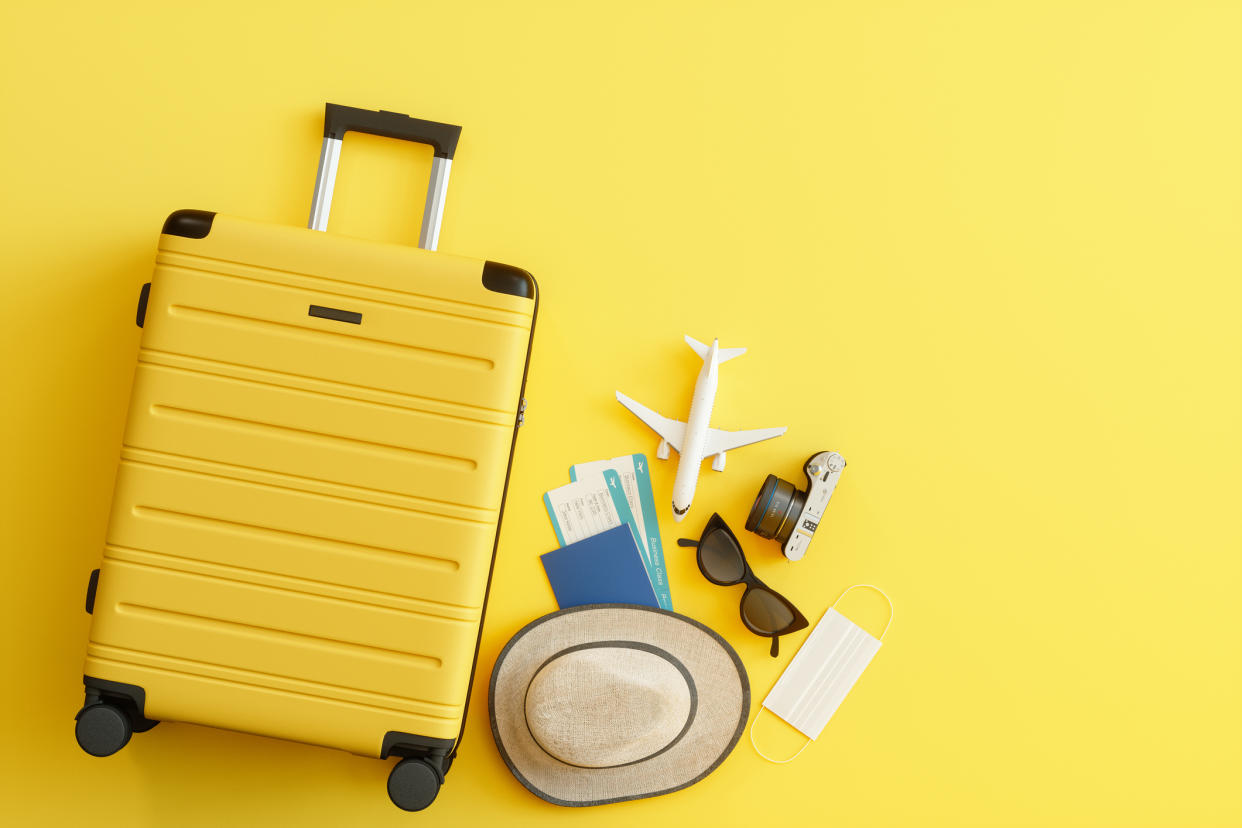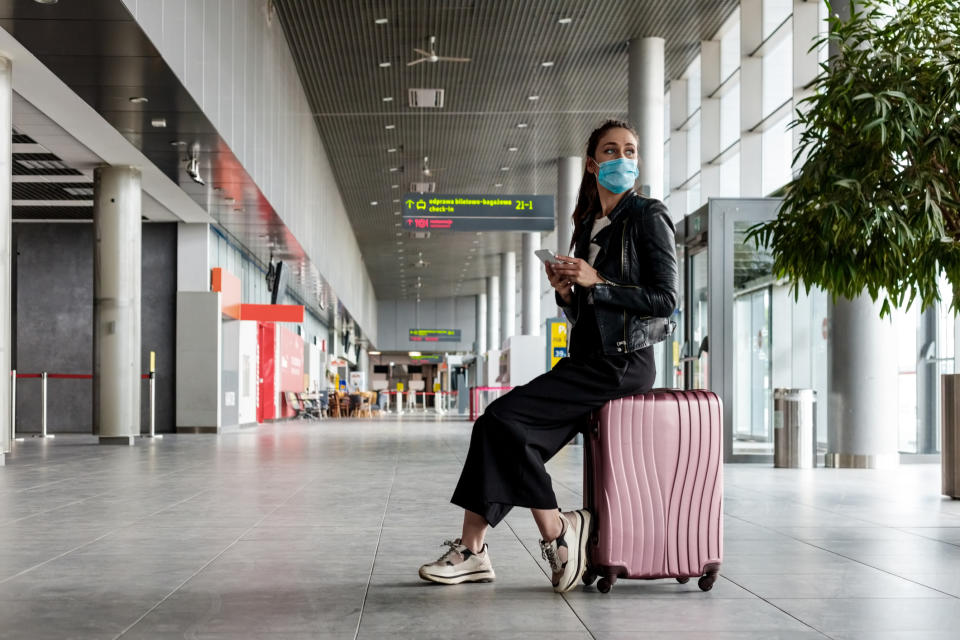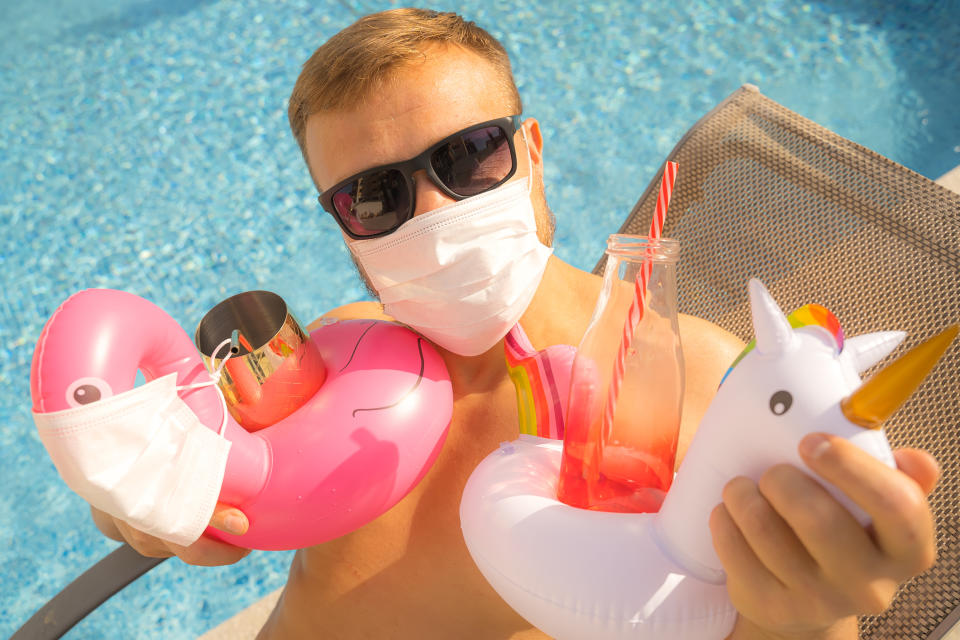What summer holidays could look like this year

After being confined to their homes for months during lockdown many Brits are dreaming of a summer getaway, but holidays will look a little different this year.
The UK Foreign and Commonwealth Office (FCO) is currently advising against all but essential travel abroad and as it stands at the moment even if you do travel you will likely have to quarantine for 14 days on your return.
However, the Government is expected to announce next week so-called air bridges, which will allow Britons to go on holiday to certain destinations without needing to quarantine for 14 days on their return to the UK.
And this news has given many families hope they may be able to travel abroad for a holiday this year.
But taking a trip in 2020 will be quite a different experience.
Though many tourist attractions are beginning to reopen, extra measures are being introduce to help curb the spread of coronavirus.
Read more: One in six parents say school holidays should be scrapped

Anyone visiting the Eiffel Tower in Paris when it reopens on Thursday will have to take the stairs - all 674 of them - because France’s iconic monument is keeping the lifts shut.
Meanwhile, in Italy, the Leaning Tower of Pisa and Florence’s cathedral are turning to technology to enforce social distancing, providing visitors with electronic devices which vibrate if they get too close to one another.
In Barcelona, the authorities are launching an app to help tourists plan their itineraries and avoid congestion and queues.
Holidaymakers in Spain, which reopened its borders to most European visitors this week, will see changes from the moment they check in.
Some hotels are introducing air purifiers, thermal cameras to check guests’ temperatures, arches which spray them with disinfectant and mats with a bleach solution to clean their shoes and suitcase wheels.
Read more: What is the risk of a second coronavirus wave?
Meanwhile instead of breakfast buffets, guests will be served by staff behind screens.
Hotels will also ask guests to use mobile apps for everything from ordering a cocktail to settling bills in order to reduce physical contact.
Those hoping to take in some culture will have a different experience too with many museums and monuments now requiring visitors to book tickets online for specific timeslots, undergo temperature checks, don masks and stick to a one-way route.
For clubbers, holidays could look drastically different this year.
Spain’s Balearic Islands have banned dancing at clubs and beach bars, while some of the islands’ superclubs, are staying shut after being told they can only host up to 100 people outdoors.
Small clubs must cover the dance floor with tables and chairs.
Though Italy’s clubs can reopen from July 15, rules vary between regions. Clubbers in some tourist hotspots including Rimini and Riccione will have to dance two metres apart – and only at open-air venues.
Drinking at the bar is out, masks are compulsory indoors and bouncers may step in to enforce social distancing.

While countries like Italy and Spain, where tourism accounts for about an eighth of GDP, are desperate to lure back visitors as they scramble to salvage the summer season, there are fears that a return to mass tourism could see a second spike in the pandemic.
“This is the most difficult situation the Spanish tourism sector has faced that anyone can remember,” said Jose Luis Zoreda, vice-president of tourism lobby group Exceltur.
“The coronavirus changed our lives,” Isabella Ruggiero, president of Rome tour guide association AGTAR told the Thomson Reuters Foundation.
Read more: Britons can travel to Italy for holiday but must quarantine for 14 days on their return
Ruggiero says tour groups will have to be smaller and itineraries carefully managed in cities such as Venice, Rome and Florence, whose cultural sites and narrow streets are not conducive to social distancing.
But there could be a silver lining to the new measures with smaller, slower, more focussed tours potentially paving the way for a more responsible form of tourism.
“This could be really good for the future of tourism,” Ruggiero added. “It's about taking care of the tourists, taking care of the local community and local economy, and not just running for a few hours to every place.”
Isabella Ruggiero, president of Rome tour guide association AGTAR told the Thomson Reuters Foundation. “The coronavirus changed our lives.”
Additional reporting Thomson Reuters Foundation.



